U17 national youth waiting for the Asian Cup: preparing for Saudi Arabia, not arrogant or timid
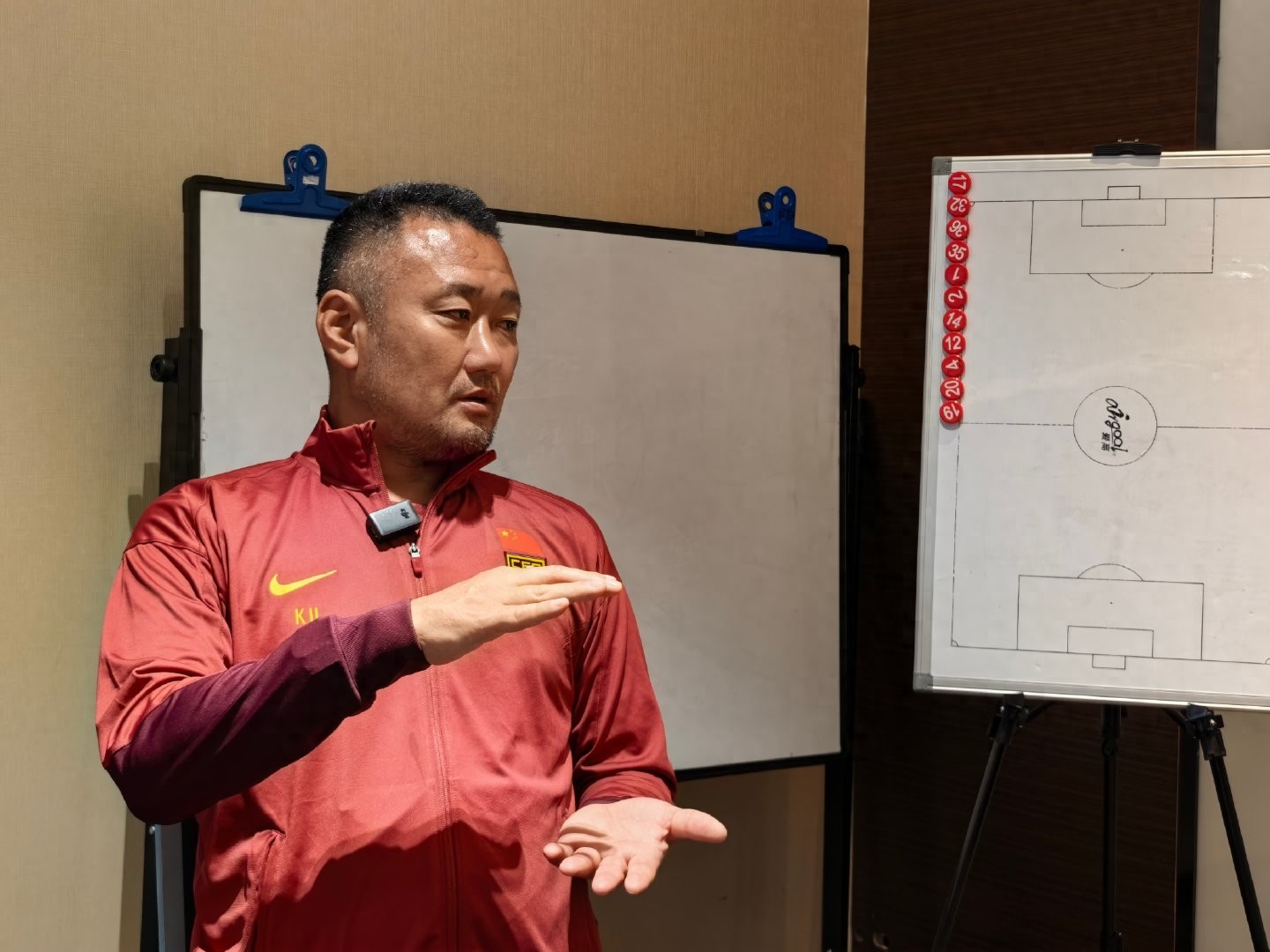
Reporter Wang Wei reports On March 29, the AFC announced the 23-man roster of the 16 teams participating in the 2025 U17 Asian Cup. At 1:15 a.m. Beijing time on April 4, the U17 national junior team will challenge the host Saudi Arabia team in the first round of the group stage.

Judging from the 27-man squad of the U17 national junior team sprinting for the Asian Cup training camp, two players have been adjusted compared with the 23-man list of the qualifiers in October last year, the third goalkeeper Wang Tianai and Li Junpeng, who is only 16 years old, were selected, and the other 21 players were all selected. In the final stage of training and preparation, five of the six new players added to the national youth team were selected through the Kunming training camp at the end of last year, including goalkeeper Wei Deliang, central defenders Li Shuaiqi and Li Xingchen, strikers Peng Ziming and Wei Zijian, and the remaining player is overseas player Jiang Yixiang.
In mid-March, when the national junior team was training in Sanshui, Guangdong, the main defenders in the 27-man list Wang Kangrui, Elinizar Luo Heman, midfielders Yao Junyu and Abibulla all had injuries, judging from the final list of 23 participants in the national junior team, in the 27-person training squad, Li Xingchen, Peng Ziming, Jiang Yixiang, Chen Zifan 4 people were defeated, and the head coach Kenichi Uemura left goalkeeper Wei Deliang, central defender Li Shuaiqi and forward player Wei Zijian.
The national junior team did not go well in the sprint stage of Guangdong Sanshui's preparation, the first few days of coming to Foshan caught up with the rain to cool down, and then in the warm-up stage suddenly heated up, the changeable weather made many of the main players sick, affecting the training. Judging from the final list of 23 players, Wang Kangrui, Elinizar Roheman, Yao Junyu and Abibulla were all selected, and judging from the warm-up match between the Chinese team and the North Korean team on March 26, they all appeared on the field, indicating that the injuries of these main players have gradually recovered and have little impact on the team's main framework.
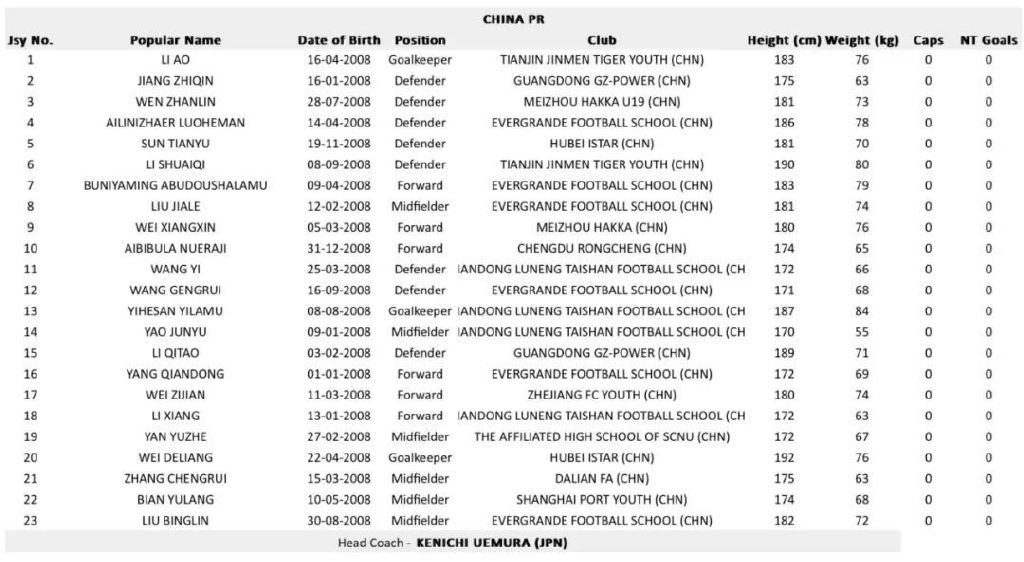

This time, the national junior team went to Dubai, United Arab Emirates two weeks in advance to train and play to adapt to the weather in West Asia. Judging from the training during this period, the weather in Dubai is similar to that of Saudi Taif where the competition is held, with temperatures reaching 378 degrees Celsius during the day and around 256 degrees Celsius at night. The altitude of Saudi Taif is 1,682 meters, which is similar to the 1,890 meters above sea level at the Kunming training base in China.
The first match between the Chinese team and the Saudi team was scheduled to be played at 1:15 a.m. Beijing time on April 4, and the Saudi Arabian local time was 20:15. The temperature is not too high at this time, and it should have little impact on the game of the national junior team. It is worth mentioning that Taif is a summer resort in Saudi Arabia and is known as the "summer capital" of Saudi Arabia. For the high altitude of 1,682 meters, the players are currently trying to adapt, and the impact should not be too big from the perspective of the adaptation situation within the team, "because in addition to us, other teams will face the same situation, everyone is equal." ”
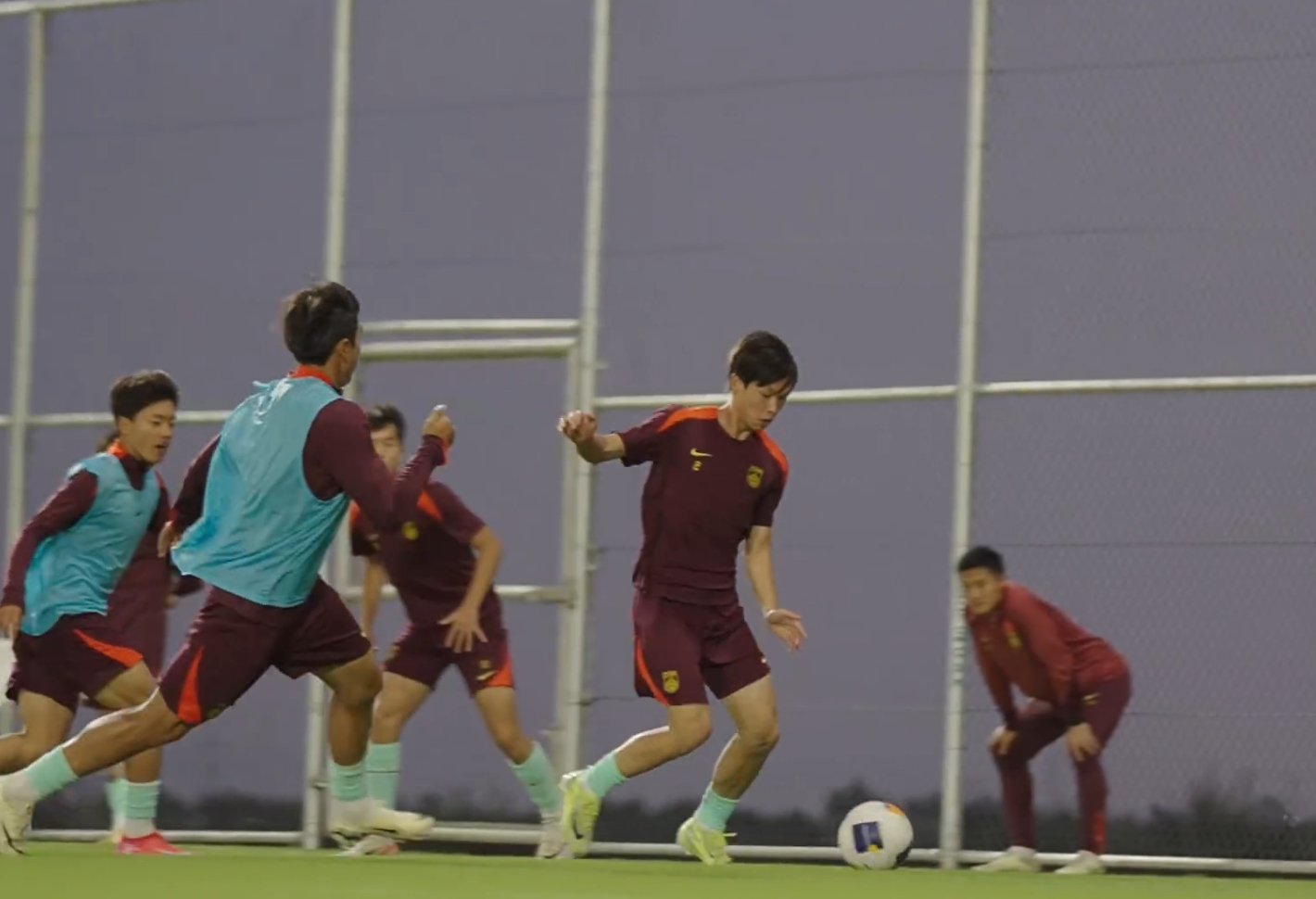
Before the start of the U17 Asian Cup, the national junior team played 4 warm-up matches, losing 0-2 and 0-4 to the U18 elite training camp team, losing 0-1 to Indonesia, and then losing 0-1 to the North Korean team. 8 goals conceded in 4 games and 1 goal not scored. Judging from this result, the outside world is worried about the state of the national junior team, however, judging from the past of this team, before the start of the qualifiers in October last year, the national junior team also had a record of consecutive defeats in warm-up matches, so the results of the warm-up do not need to be paid too much attention.
The Under-17 team's performance in the qualifiers last October was eye-catching, which inevitably led fans to expect too much from them. At present, the coaching staff requires all players to devote themselves to the final sprint training, avoid external disturbances, and can neither have blind optimism nor be cowardly.

It is understood that Kenichi Uemura has studied the three opponents in the group stage, and he believes that Saudi Arabia, Uzbekistan and Thailand have the same tactics at both ends of the offensive and defensive ends, and they all attach great importance to the organization and penetration of the backfield. Kenichi Uemura believes that among the three opponents, the Saudi players have the strongest individual combat ability, which is the key point to guard.
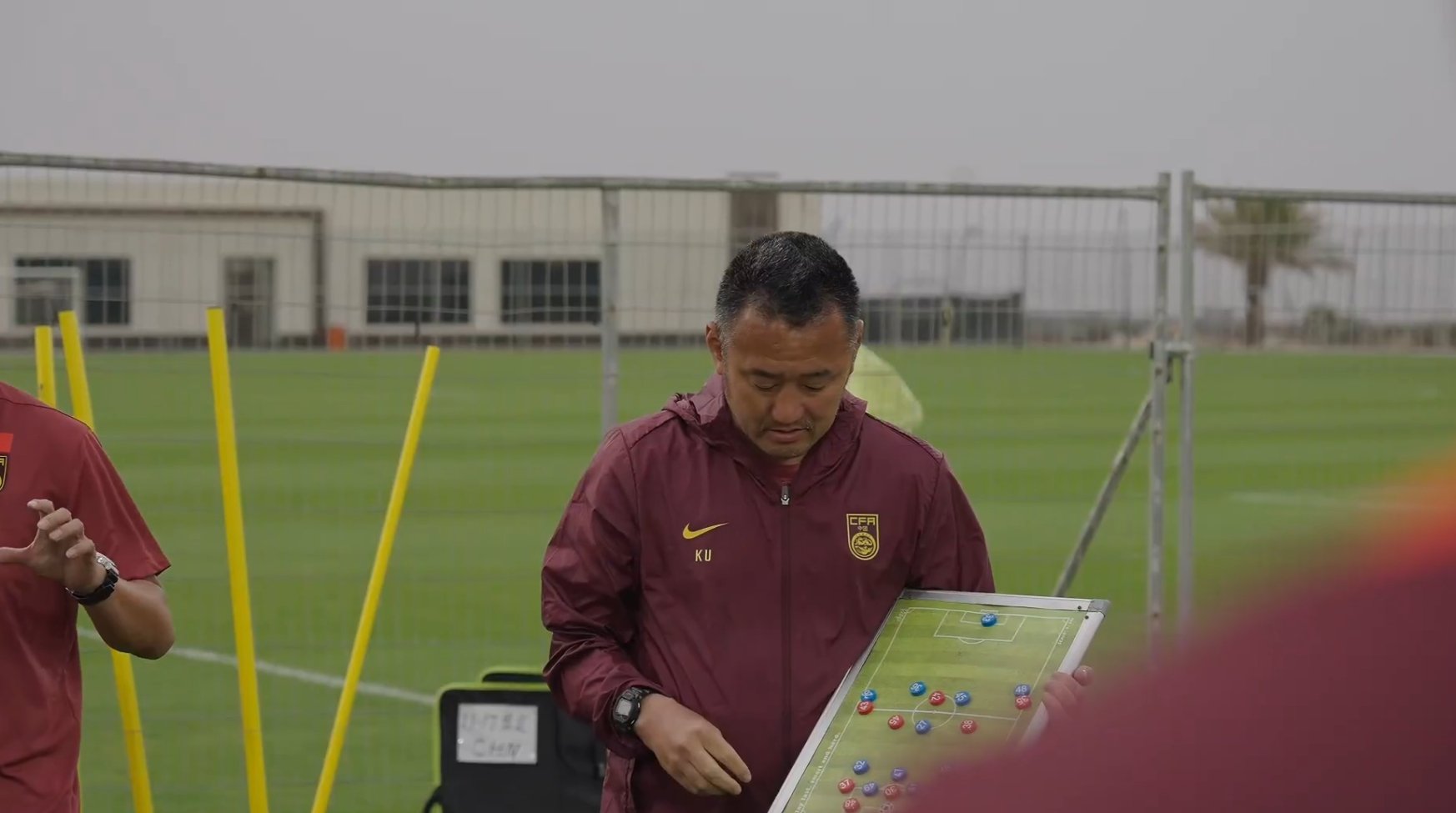
The first game of the U17 Asian Cup met the host Saudi Arabian team, and it can be said that Sino-Saudi Arabian football has been entangled recently. From the round of 18 to the U20 Asian Cup, and now to the U17 Asian Cup, the third-level national teams of Sino-Saudi Arabia football will face off directly. Kenichi Uemura believes that U17 players are not physically the same as senior national team and U20 players, and their technical characteristics are also different, so these matches are not comparable. For the upcoming match with the Saudi U17 team, Kenichi Uemura said that he will adhere to the team's technical and tactical style of play and show the individual characteristics of the players as much as possible.
At the same time, Kenichi Uemura emphasized the defensive tactics of set-pieces in training, requiring players not to easily foul in the backfield, not to easily give opponents the opportunity to get set-pieces in the frontcourt, and at the same time, to mark the key players of the Saudi team, and the whole team to do a good job of assisting defense and competing for two penalties.
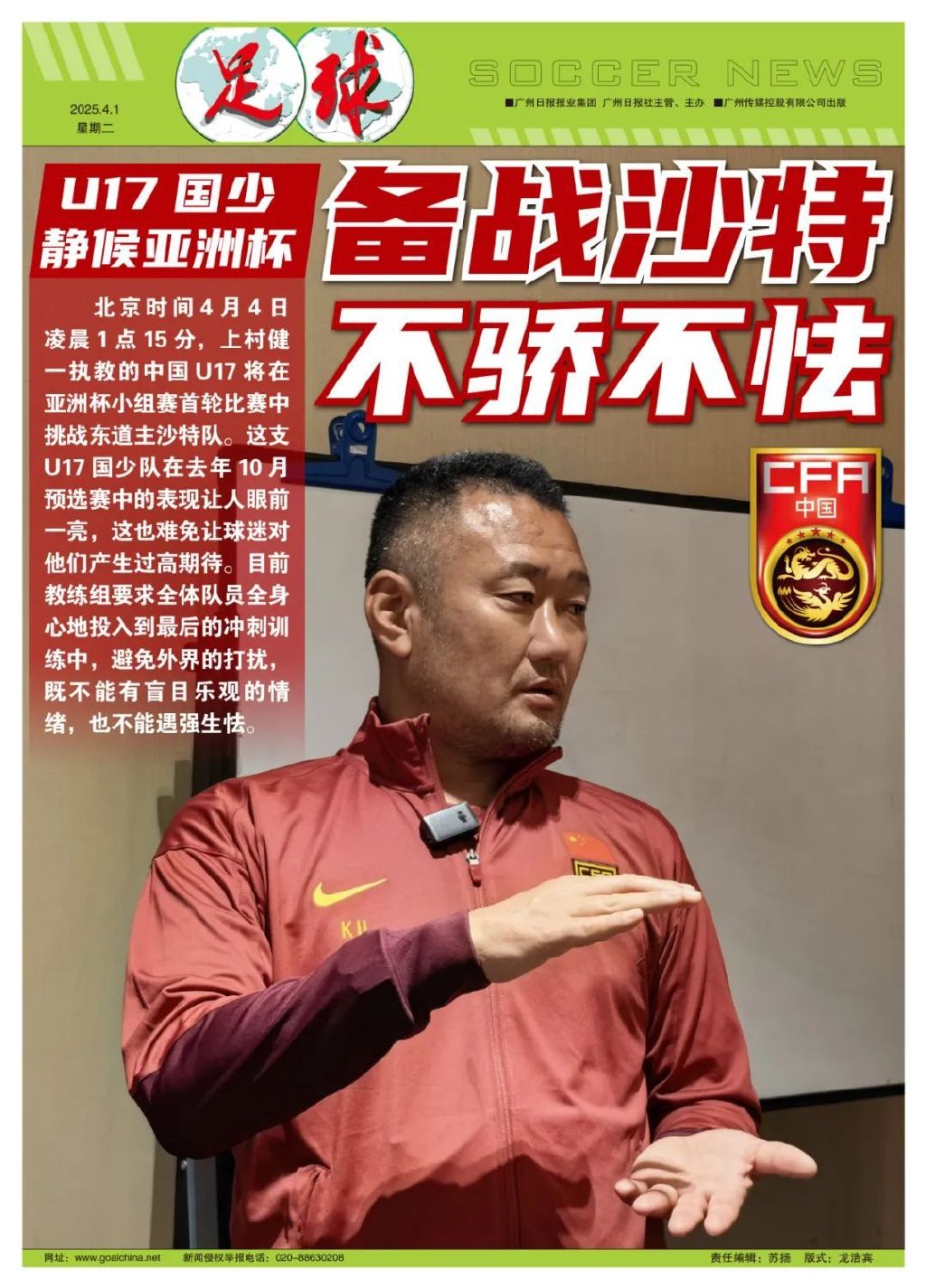


Wonderfulshortvideo
Things you really love to see


Neymar highlights neymar edit neymar lamine yamal celebration


Arsenal 1-0 chelsea havertz goal


Ahead of his 100th cap, Sir Keir Starmer had this message for Maro Itoje…


yamal goal yamal instagram yamal dribble barcelona 2-1 albacete yamal highlights yamal edit


casemiro goal casemiro assist casemiro 6 7 celebration


"Can I just start off by saying I want to congratulate Maro on 100 tests... He's a great bloke and a great player."








 Links
Links
 Contact
Contact
 App
App


